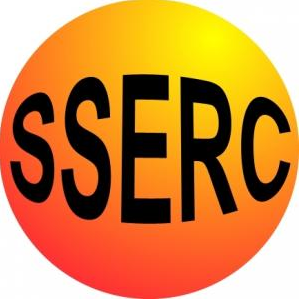August 24, 2016
by I. Menzies
0 comments
F ind out how one girl from Scotland got on in New York this summer following her participation in a global STEM Programme promoted by Education Scotland in partnership with the New York Academy of Sciences. Watch this space for further information about year 2 of the programme.
ind out how one girl from Scotland got on in New York this summer following her participation in a global STEM Programme promoted by Education Scotland in partnership with the New York Academy of Sciences. Watch this space for further information about year 2 of the programme.
When I first found out that I was participating in the ‘1000 Girls, 1000 Futures’ New York Academy of Sciences programme, I was so filled with excitement! I never realised opportunities like this would be available for a young person living in Scotland interested in STEM. During the programme, each girl is paired with a mentor, a female in the STEM field. Throughout the year I have had video calls with my mentor and completed the four modules of work: critical thinking; college readiness; leadership; and communication. This work has helped me to develop further vital skills needed for a career in the STEM field.
My mentor, Victoria, who lives in Los Angeles, is studying for her PhD in chemical engineering; this was perfect for me as that is the course I hoped that I would be taking the following year at university. We have had monthly video calls and she has given me a lot of helpful advice towards choosing a university and about the course itself.
As Victoria lives on the other side of America, she did not have the opportunity that I had to attend the NYAS Global Summit in New York, from 26- 28 July this summer, at World Trade Center 7, where the Academy is based.
On the first day, there were two activities for us to complete in teams. First we had a speaker, ‘JackieOProblems” who taught us the value of using social media to our advantage in a career in STEM by making yourself a brand. This allows employers to see a more rounded person and could make you more employable.
The second activity was about ‘smart houses’ and in our teams, we were given a room of the house to focus on. In that room we had to think about all the ways that technology could be used in a house to make lives easier.
 The following day, we had the opportunity to listen to four panels talking about different issues surrounding STEM. Each panelist was an expert in their own field so it was interesting to hear their thoughts on each topic and be able to ask them questions. The four panels were called: Collaboration: The Key to Unlocking Innovation; Where Will the Jobs Be?; Working Scientifically, Thinking Ethically; and ‘Beyond Borders: The New STEM Workplace’. Although each panel covered a different issue in STEM, what I found really fascinating was where each expert started their career and where they are now. Most of the experts started their career in a completely different field. This taught me that you really can do anything you want to do and not to let even your university degree define you.
The following day, we had the opportunity to listen to four panels talking about different issues surrounding STEM. Each panelist was an expert in their own field so it was interesting to hear their thoughts on each topic and be able to ask them questions. The four panels were called: Collaboration: The Key to Unlocking Innovation; Where Will the Jobs Be?; Working Scientifically, Thinking Ethically; and ‘Beyond Borders: The New STEM Workplace’. Although each panel covered a different issue in STEM, what I found really fascinating was where each expert started their career and where they are now. Most of the experts started their career in a completely different field. This taught me that you really can do anything you want to do and not to let even your university degree define you.
On the final day, we went on a field trip in New York City. The trip that I chose was to the Rockefeller University where we got the opportunity to view their labs. We saw an electron microscope and we were shown the procedures put in place to make sure the readings from the microscope were accurate. For example the whole room that contained this huge microscope had to be sound proof as the smallest sound would void the readings.
When we returned to the NYAS, we had the opportunity to listen to a final panel discussion on ‘Achieving the Sustainable Development Goals Through Science Technology and Innovation’. These goals are set up by the United Nations and include gender equality, clean water and quality education. We learned about the importance of being innovative when trying to improve the quality of people’s lives. We were also encouraged to work with partners when problem solving. After the panel discussion, there were boards set up with each goal on it where we were encouraged to write our thoughts are each goal and why each one was important.
What truly amazed me about this programme was how global it is. I feel so lucky to have spent time with such inspiring girls and I now have a network of friends across the world. It was a once in a lifetime opportunity and I appreciate how fortunate I have been to have participated in this programme.
Orla Nimmo
East Dunbartonshire Council
















